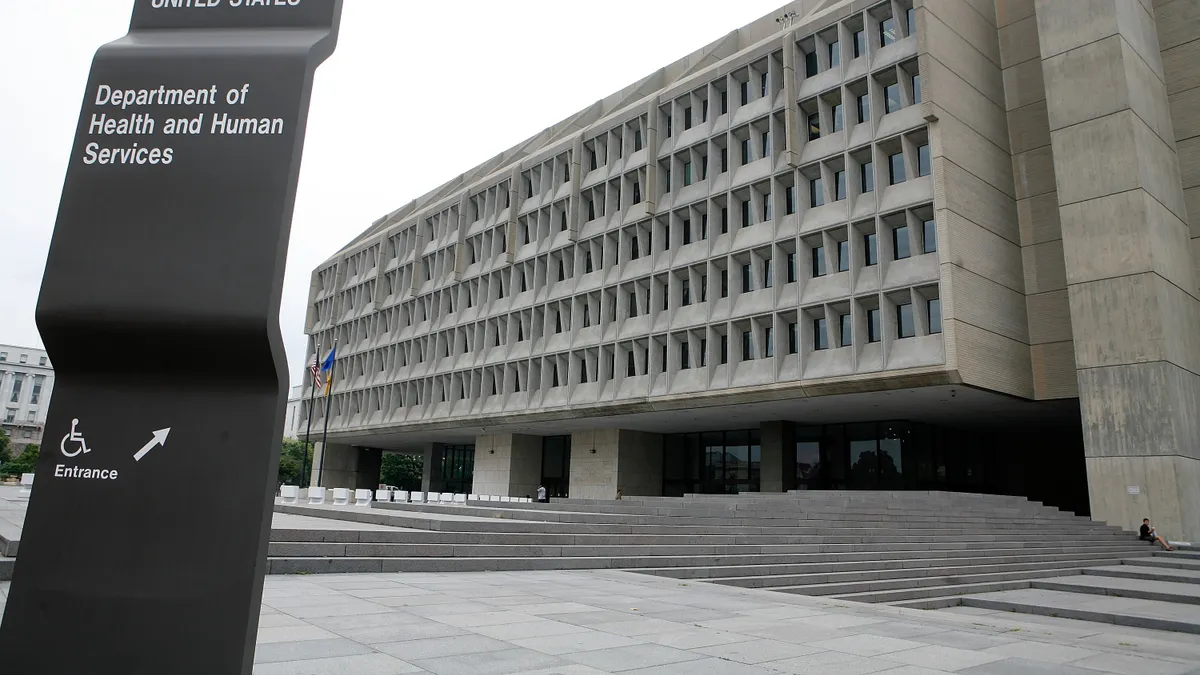Dive Brief:
- A top spokesperson for HHS tweeted Monday night the department "expects to renew" the public health emergency for COVID-19 currently set to expire at the end of next month.
- HHS did not respond to requests for further comment Tuesday morning. No official statement from the department has addressed the issue, but the tweet from Michael Caputo uses the official account of the HHS assistant secretary for public affairs.
- Extending the emergency will allow providers to continue to use flexibilities and waivers meant to help them respond to the COVID-19 pandemic, including those that promote the use of telehealth and adjust requirements for CMS value-based payment models. The determination of a public health emergency is also an avenue by which FDA can exercise its emergency use authorization authority.
Dive Insight:
Sectors helping respond to the public health emergency from all sides have voiced the need for the declaration to continue.
The American Clinical Laboratory Association sent a letter to HHS Secretary Alex Azar on June 23 asking for at least a 90-day extension before the July 25 expiration date.
"[M]aintaining the PHE status is required if we are to increase the pace of research on SARS-CoV-2, accelerate
development of medical countermeasures, streamline efforts to bring novel diagnostics, vaccine candidates and therapeutic options to market, and ensure that the public has access to health care and other social services," the letter said.
The American Hospital Association asked in a June 19 letter to HHS for the extension of the public health emergency, which was first declared at the end of January. The hospital group said "now is not the time to pull back, but rather reinforce the need for a strong response from America's hospitals and health systems as we work through the coming months."
The coming months are indeed likely to be brutal for hospitals, at least in parts of the country seeing a surge in COVID-19 patients.
States like Arizona, Texas, Florida and California are reporting record case numbers and hospitalizations. Hospitals in some Texas counties have once again halted elective procedures and those states have stopped or reversed reopening plans amid the increases.
Enough already. @HHSGov expects to renew the Public Health Emergency due to COVID-19 before it expires. We have already renewed this PHE once. Learn more here: https://t.co/QsWSaP6X2D
— Michael R. Caputo (@SpoxHHS) June 29, 2020
But Azar on Friday said the country has made significant progress in responding to the novel coronavirus. "We're in a much stronger position to support states, hospitals and individuals as they fight back," he said at a press briefing.
AHA laid out criteria to be met before the emergency is allowed to expire, including thresholds for testing and limits on positive cases, hospitalizations and deaths.
CMS has implemented a number of waivers and other changes tied to the public health emergency, which also frees up funding for HHS and the Centers for Disease Control and Prevention.
Some relax HIPAA and other reporting requirements so that providers can focus on the crisis. There are also changes that allow facilities to provide hospital-level care outside their four walls and roll back restrictions on telehealth appointments. AHA and other provider groups have requested many of those changes be made permanent even after the emergency expires.












